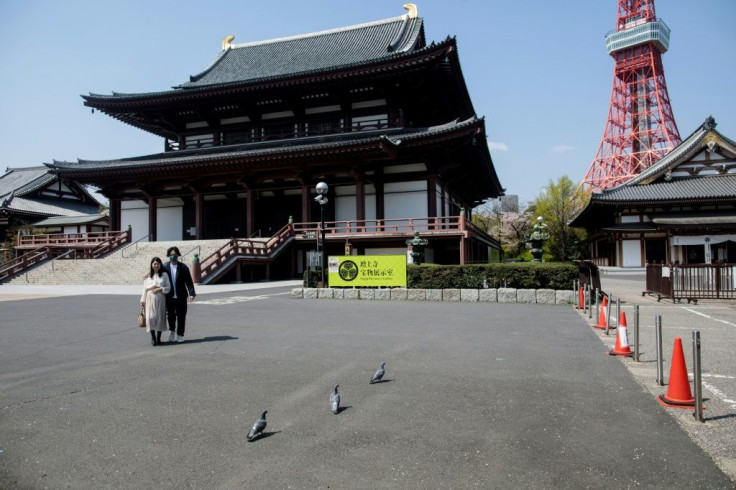Main Points Of Japan's $1 Trillion Emergency Package

Japan is unleashing economic stimulus measures worth around $1 trillion as it battles the coronavirus outbreak, which has prompted a state of emergency in several parts of the country, including Tokyo.
The package, valued at 108 trillion yen, envisages the government spending 39.5 trillion yen to protect jobs, bolster the medical sector and ease the pain for working families. Bonds worth 16.8 trillion yen will be issued to help pay for the measures.
Here is a look at the key items:
The bulk of the stimulus -- worth 80 trillion yen -- aims to protect jobs and save small and medium-sized businesses.
The government will expand employment subsidies to help firms pay salaries and interest payments, and avoid job cuts.
Government-backed lending institutions will offer interest-free loans, and handouts of up to two million yen will be available for small and medium-sized businesses whose revenues plunge by more than 50 percent.
Tax cuts and other assistance will also be available for event organisers who cancelled or delayed their projects at the request of the government.
The package also sets aside 2.5 trillion yen to assist medical institutions and pay for development of drugs to treat coronavirus patients.
The government plans to stockpile enough flu-treatment drug "Avigan", or favipiravir, to treat two million patients, with reports saying it can shorten recovery time in coronavirus infections.
It also aims to distribute 15 million masks to medical institutions in April and secure up to 50,000 hospital beds to treat severe infection cases in the near future.
The package also encourages development of ventilators and greater use of telemedicine.
Low-income families that suffer a significant reduction of income due the outbreak will be eligible for handouts of 300,000 yen per household. And families with children will also receive 10,000 yen per child, with high-income households excluded.
Individuals in need will also be given access to interest-free emergency loans.
The package includes financial incentives worth an estimated 15.7 trillion yen for businesses to bring manufacturing back to Japan, in the hope of reducing supply chain disruptions during future global crises, including pandemics.
In particular, businesses are encouraged to repatriate the production of items such as masks, protective suits, sanitiser, ventilators, artificial lungs and materials to produce drugs.
Business will also be encouraged to diversify foreign sources of necessary supplies, particularly by investing heavily in various countries in Southeast Asia. Measures to promote telework and remote education are also included.
In addition to easing the current economic pain, the package looks ahead, offering ways to jump-start the economy after the pandemic.
Measures intended to have a total 8.5 trillion yen worth of impact include campaigns to boost tourism, transport and the restaurant and entertainment sectors after the coronavirus is contained.
Coupons and discounts will be offered to help those sectors hardest hit by the slump in consumption. Community-based promotional events will also take place to help local businesses and shopping districts.
Sports and cultural events, as well as marketing campaigns to encourage tourists to return to Japan, are being planned.
© Copyright AFP 2024. All rights reserved.





















